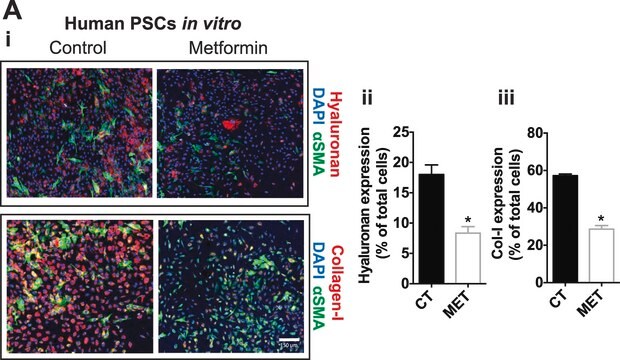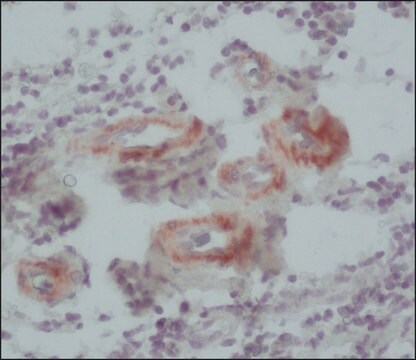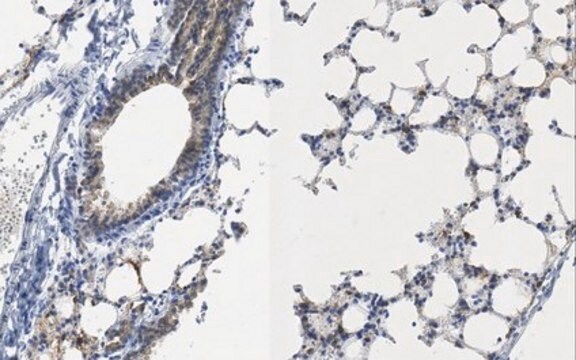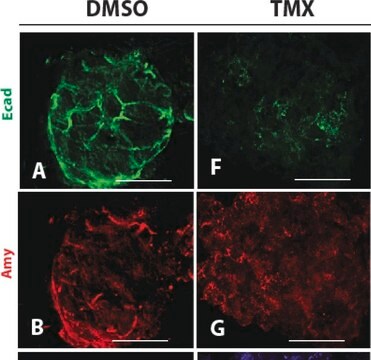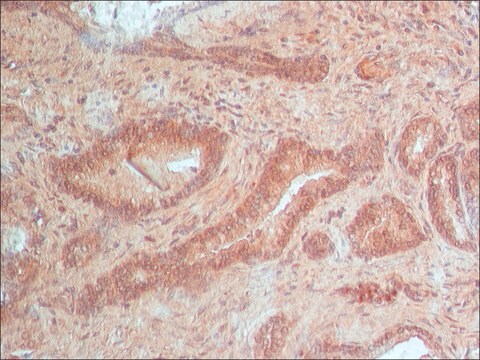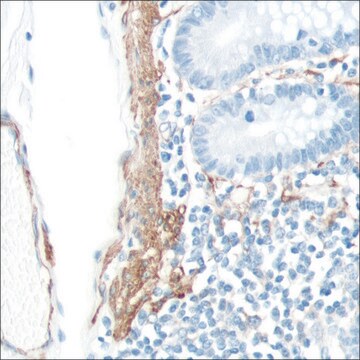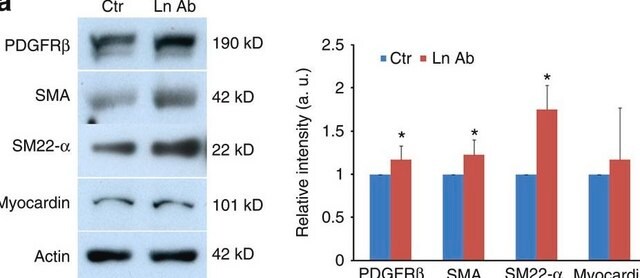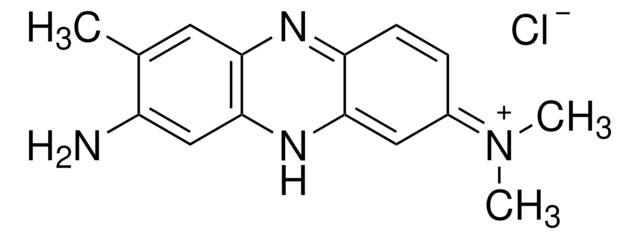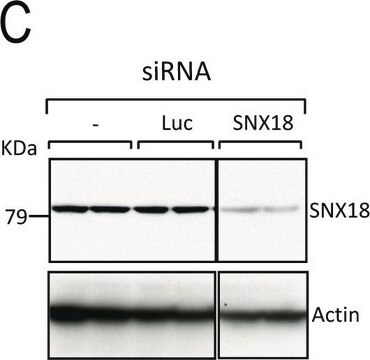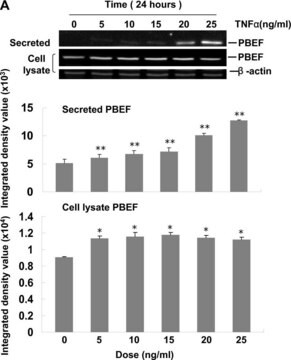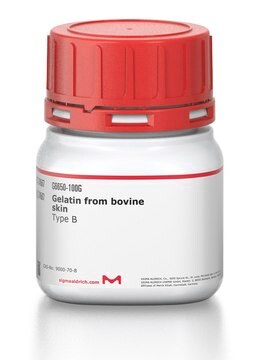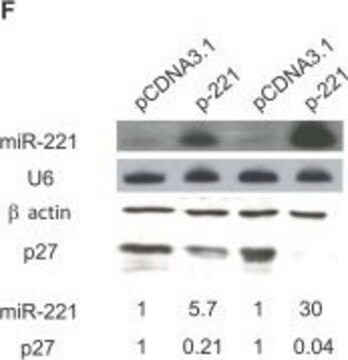SAB4200679
Monoclonal Anti-Actin, α-Smooth Muscle - Peroxidase antibody produced in mouse
clone 1A4, purified from hybridoma cell culture
Synonym(s):
AAT6, ACTSA, MYMY5, actin, alpha 2, aorta, smooth muscle
About This Item
Recommended Products
biological source
mouse
conjugate
peroxidase conjugate
antibody form
purified immunoglobulin
antibody product type
primary antibodies
clone
1A4, monoclonal
form
lyophilized powder
mol wt
antigen ~42 kDa
species reactivity
frog, mouse, hamster, chicken, viper, bovine, crayfish, goat, rat, cat, sheep, guinea pig, lizard, human, rabbit, dog, snail
technique(s)
direct ELISA: suitable
immunoblotting: 2-4 μg/mL using extracts of mouse heart tissues
immunohistochemistry: 5-10 μg/mL using human appendix or tonsil tissue sections
isotype
IgG2a
shipped in
dry ice
storage temp.
−20°C
target post-translational modification
unmodified
Gene Information
human ... ACTA2(59)
General description
Immunogen
Application
- direct-immunoblotting
- direct-immunohistochemistry
- direct- enzyme linked immunosorbent assay (ELISA)
- direct staining of tissues and cells
- characterization of stromal cell heterogeneity in various organs and distinguish smooth muscle cells from fibroblasts in mixed cultures.
Biochem/physiol Actions
Physical form
Preparation Note
Disclaimer
Not finding the right product?
Try our Product Selector Tool.
Signal Word
Danger
Hazard Statements
Precautionary Statements
Hazard Classifications
Aquatic Chronic 3 - Eye Irrit. 2 - Resp. Sens. 1 - Skin Irrit. 2 - Skin Sens. 1
Storage Class Code
11 - Combustible Solids
WGK
WGK 2
Flash Point(F)
Not applicable
Flash Point(C)
Not applicable
Certificates of Analysis (COA)
Search for Certificates of Analysis (COA) by entering the products Lot/Batch Number. Lot and Batch Numbers can be found on a product’s label following the words ‘Lot’ or ‘Batch’.
Already Own This Product?
Find documentation for the products that you have recently purchased in the Document Library.
Customers Also Viewed
Our team of scientists has experience in all areas of research including Life Science, Material Science, Chemical Synthesis, Chromatography, Analytical and many others.
Contact Technical Service

